Bi-Directional Medical Delivery
Tanzania: Providing an island in Lake Victoria with medical supplies

61 km
distance
(one way)

39 min
average flight time
(till delivery)

1 kg
average payload
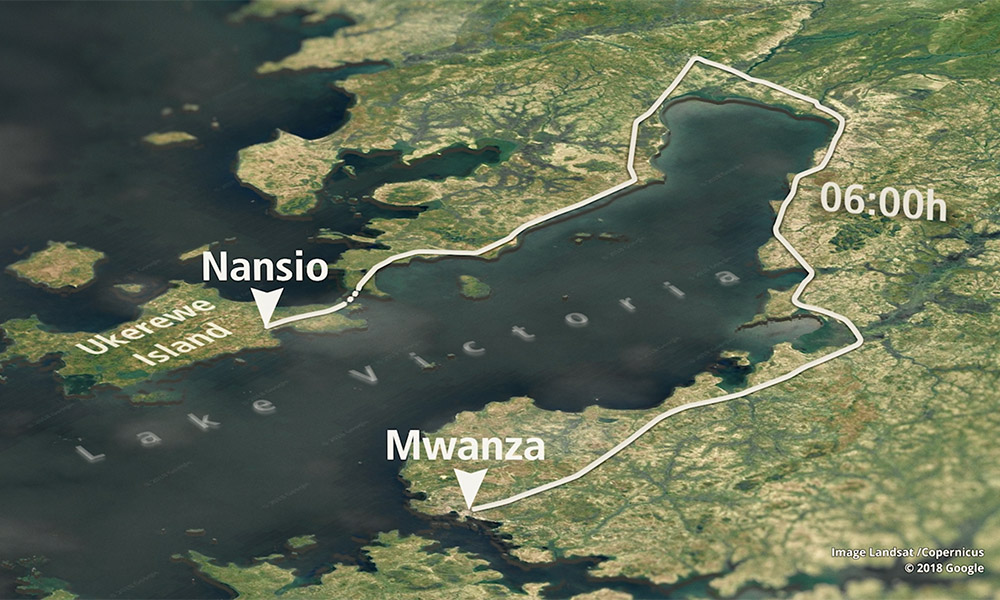
Challenge
Challenge
Challenge
Challenge
Medical care for the roughly 400,000 residents of Ukerewe island in Lake Victoria is severely limited due to poor infrastructure and difficult terrain.
It takes six hours to provide emergency medication or refill cold chain stock-outs from the regional medical distribution center on the Tanzanian mainland using the 240 km overland route.
The remote island of Pentecost is one of 83 islands in the South Pacific that make up the nation of Vanuatu. The 60 km long island is made up predominantly of mountainous terrain covered in dense jungle. In many cases, the islanders don’t have access to roads, electricity or permanent healthcare facilities.
Providing access to vaccines in the most remote communities involves nurses travelling from health centers, sometimes having to hike for several hours or days, or travel by boat around the island. Even short distances can take long and costly hours in which the heat-sensitive medical supplies are exposed to the tropical heat and arduous travel conditions.
Medical care for the roughly 400,000 residents of Ukerewe island in Lake Victoria is severely limited due to poor infrastructure and difficult terrain.
It takes six hours to provide emergency medication or refill cold chain stock-outs from the regional medical distribution center on the Tanzanian mainland using the 240 km overland route.
Medical care for the roughly 400,000 residents of Ukerewe island in Lake Victoria is severely limited due to poor infrastructure and difficult terrain.
It takes six hours to provide emergency medication or refill cold chain stock-outs from the regional medical distribution center on the Tanzanian mainland using the 240 km overland route.
Solution
Solution
Solution
To prove that the delivery of medicines to remote areas using drones can help overcome logistical challenges, we partnered with DHL and Deutsche Gesellschaft für Internationale Zusammenarbeit (GIZ) GmbH on behalf of the German Federal Ministry for Economic Cooperation and Development (BMZ).
In the six-month pilot project “Deliver Future”, we successfully tested the delivery of medicines by Wingcopter from the Medical Stores Department in Mwanza to Nansio District Hospital on Ukerewe island. On its way back, the Wingcopter drone transported blood and laboratory samples to be analyzed on the mainland.
To prove that the delivery of medicines to remote areas using drones can help overcome logistical challenges, we partnered with DHL and Deutsche Gesellschaft für Internationale Zusammenarbeit (GIZ) GmbH on behalf of the German Federal Ministry for Economic Cooperation and Development (BMZ).
In the six-month pilot project “Deliver Future”, we successfully tested the delivery of medicines by Wingcopter from the Medical Stores Department in Mwanza to Nansio District Hospital on Ukerewe island. On its way back, the Wingcopter drone transported blood and laboratory samples to be analyzed on the mainland.
To prove that the delivery of medicines to remote areas using drones can help overcome logistical challenges, we partnered with DHL and Deutsche Gesellschaft für Internationale Zusammenarbeit (GIZ) GmbH on behalf of the German Federal Ministry for Economic Cooperation and Development (BMZ).
In the six-month pilot project “Deliver Future”, we successfully tested the delivery of medicines by Wingcopter from the Medical Stores Department in Mwanza to Nansio District Hospital on Ukerewe island. On its way back, the Wingcopter drone transported blood and laboratory samples to be analyzed on the mainland.
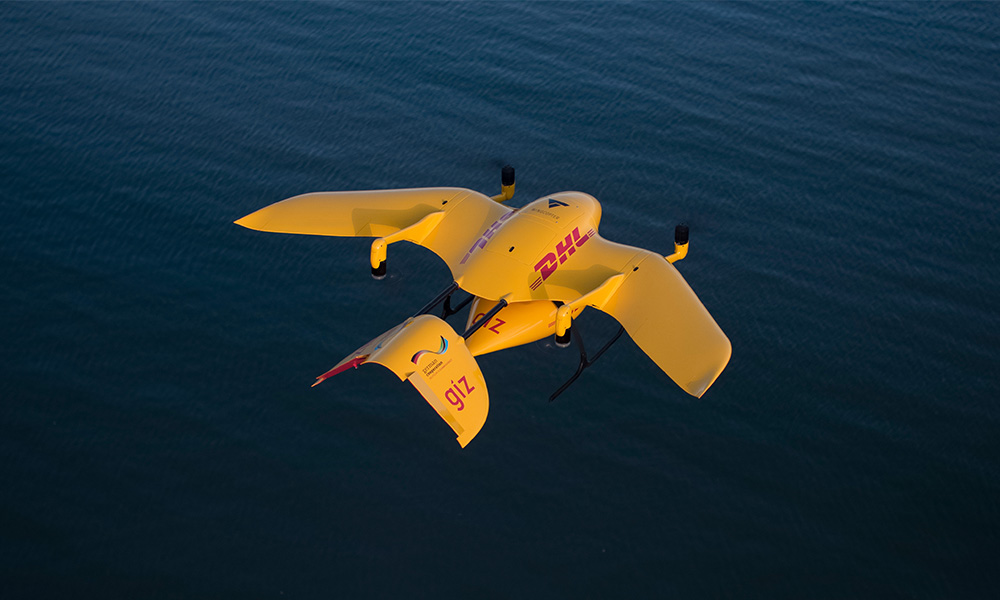
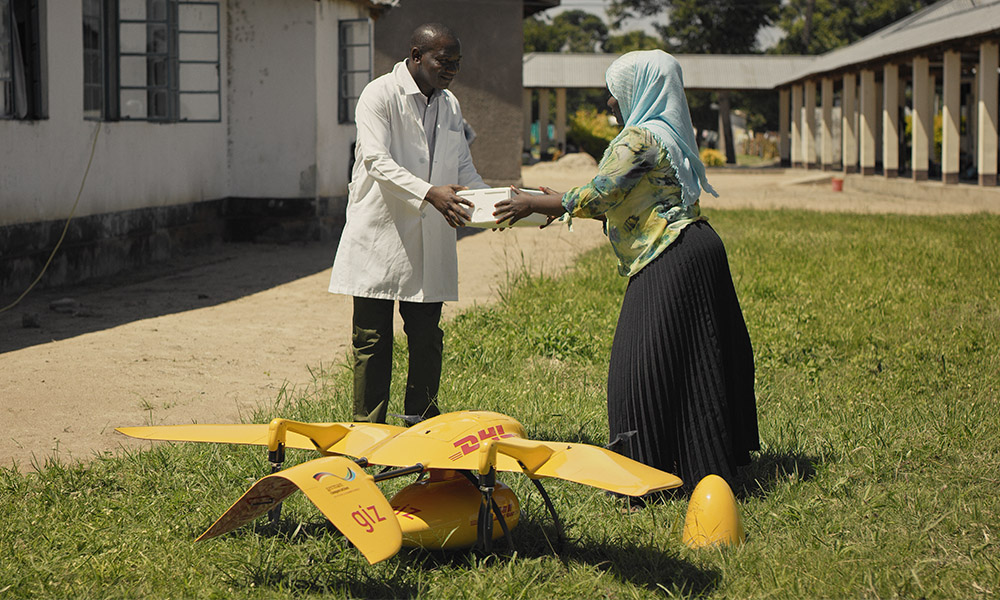
Outcome
Outcome
Outcome
During the trials, the drone reached the island hospital almost 10 times as fast as by traditional means of transport.
With an average flight time of 39 minutes for the 61-kilometer flight, we successfully demonstrated that we can significantly reduce patients’ waiting times in remote areas and prevent frequent stock-outs of urgently needed medication.
During the trials, the drone reached the island hospital almost 10 times as fast as by traditional means of transport.
With an average flight time of 39 minutes for the 61-kilometer flight, we successfully demonstrated that we can significantly reduce patients’ waiting times in remote areas and prevent frequent stock-outs of urgently needed medication.
During the trials, the drone reached the island hospital almost 10 times as fast as by traditional means of transport.
With an average flight time of 39 minutes for the 61-kilometer flight, we successfully demonstrated that we can significantly reduce patients’ waiting times in remote areas and prevent frequent stock-outs of urgently needed medication.
Impressions
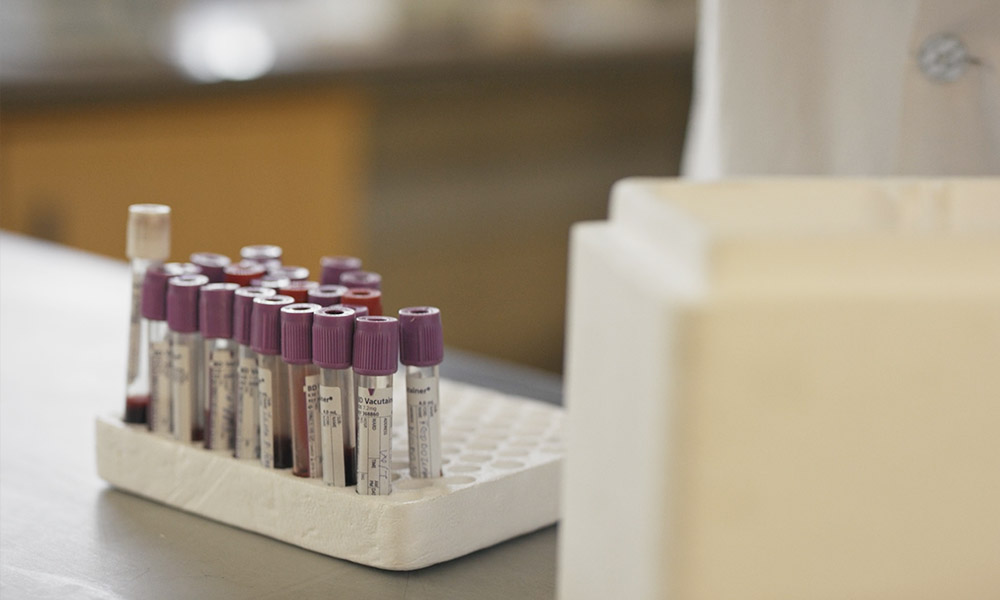
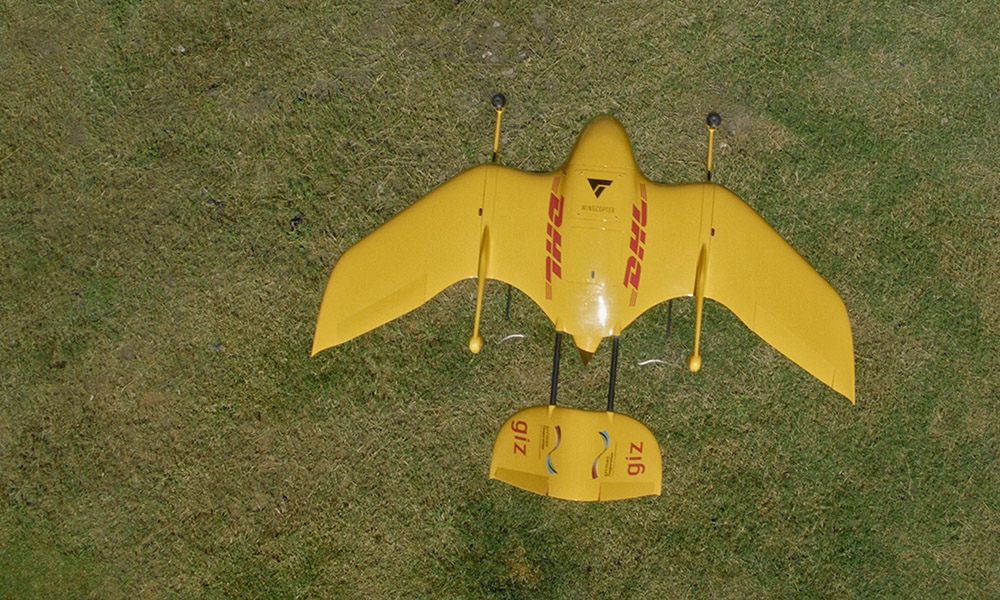
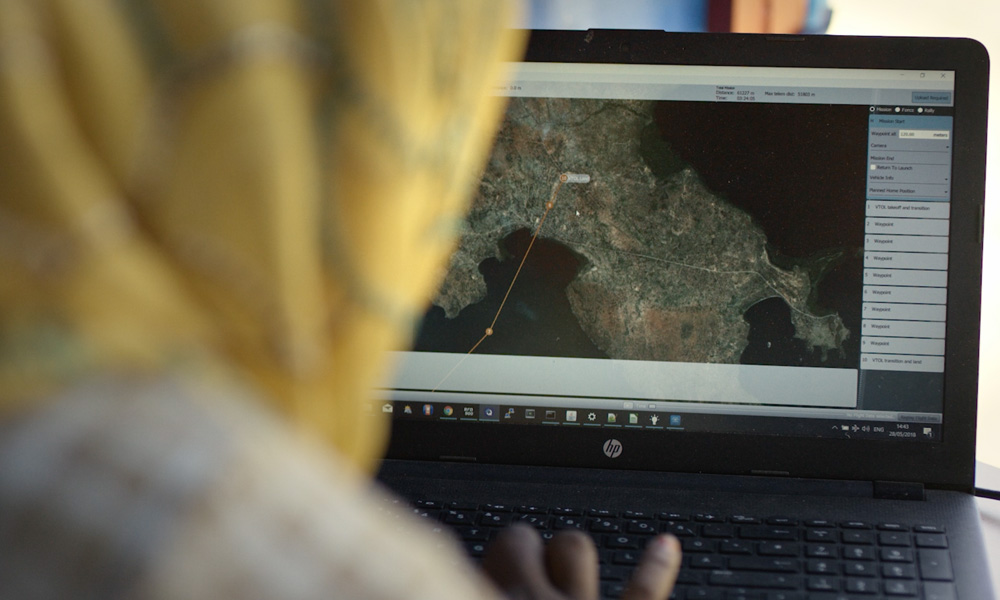

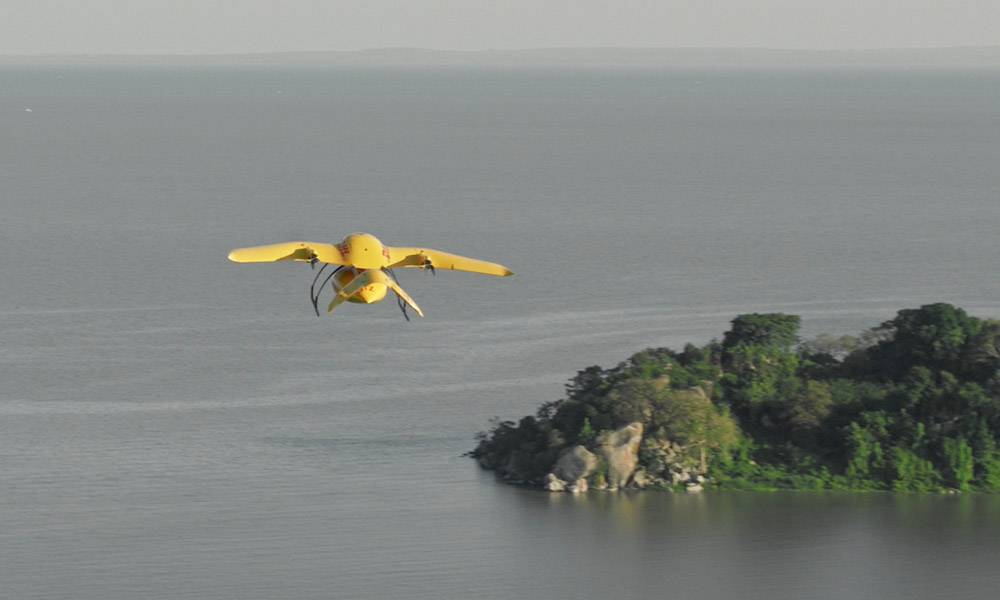
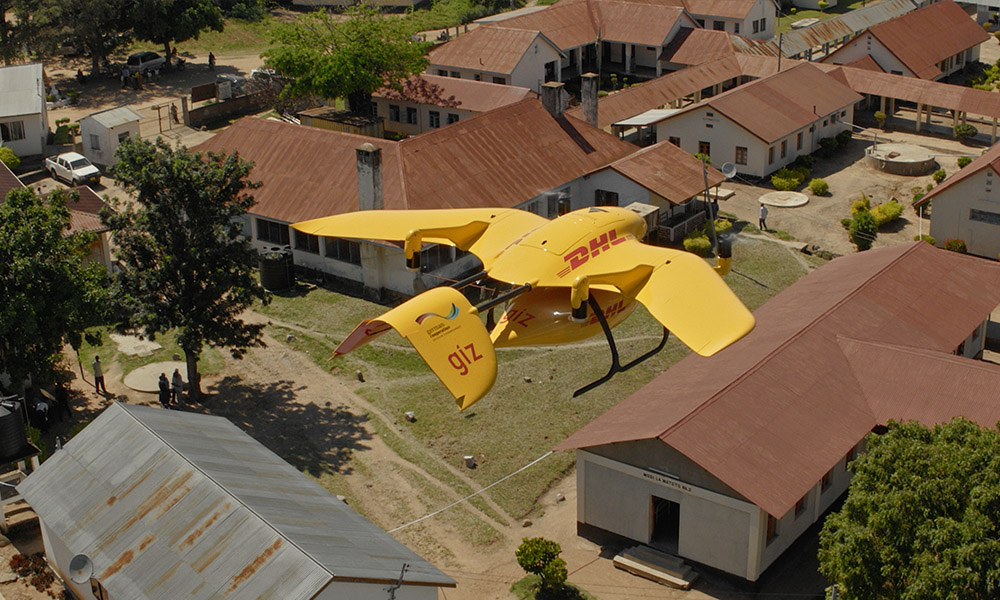
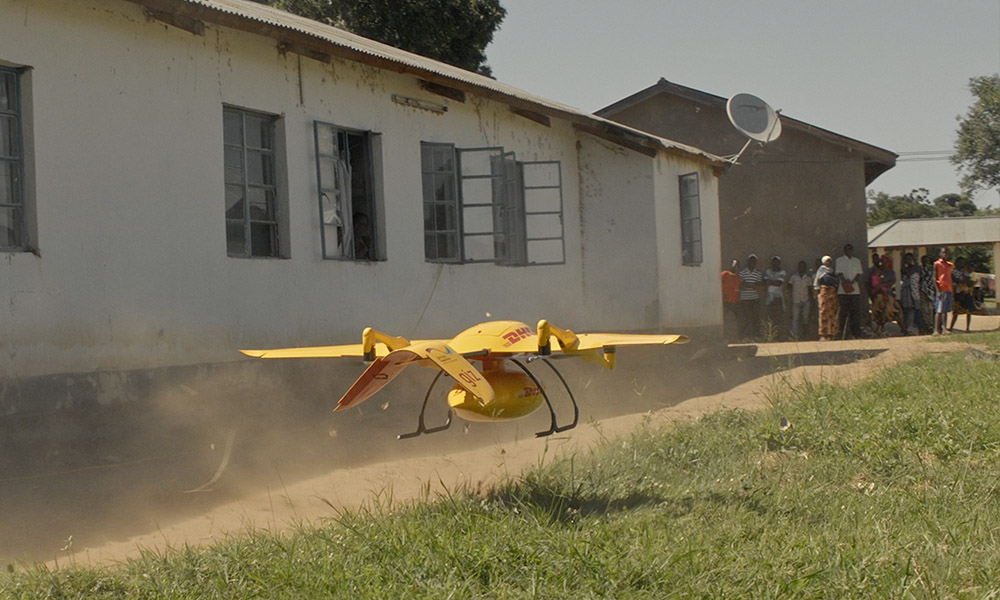

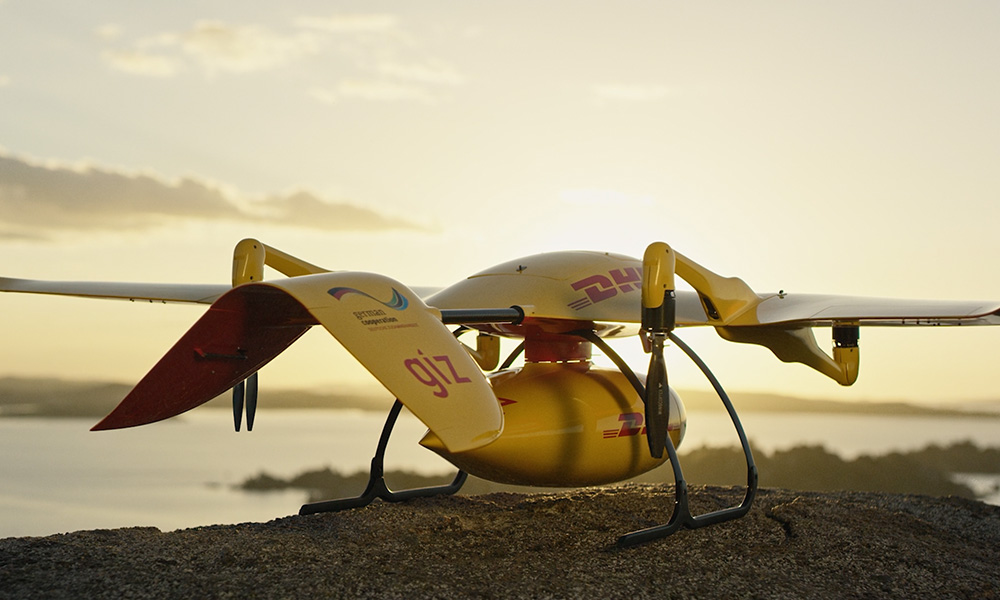
Connect with us and discover what our drone solutions can do for you
Stay up-to-date
Sign up for our newsletter to receive the latest news about our product development, interesting projects, new strategic partners, company milestones etc.

